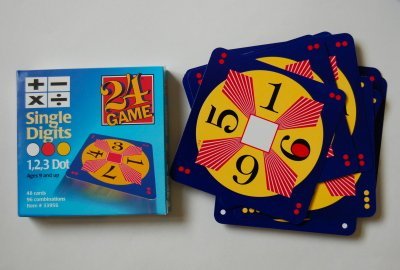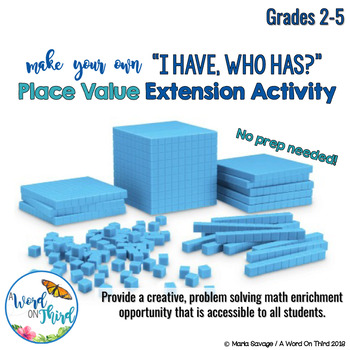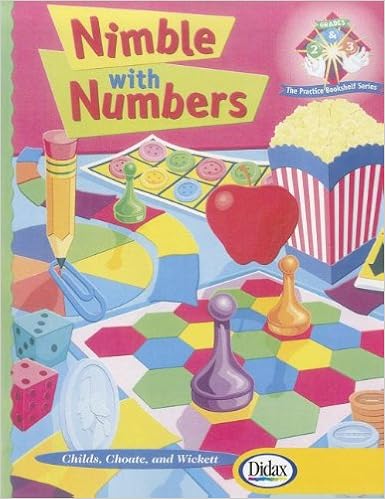Do you have students who are really strong in math and seemingly always finish early? Yes, of course you have those students! I find that Reader's and Writer's Workshop both lend themselves naturally to differentiated instruction, but math can be a little trickier, even if you teach by using the workshop model. When students finish writing or reading, they simply write or read some more! What should students do when they finish their math problems?
There are a TON of things I love to do with my students, and many of them involve math games. I love letting my kids play math games when they finish with their work because it is fun, engaging, and lets them review important math skills. It doesn't make sense for students to learn about multiplication only during the multiplication unit and then barely use it again. If we want our teaching to stick, we have to be hitting so many different mathematical concepts so often that it can sometimes feel like a big juggling act.
Here is a short list of three of my favorite enrichment activities/resources. They are student-tested and easy to teach! Once they are set up, you don't really have to reteach them again (unless you have a particular kid who needs it, but it's rare). These activities are really great for addressing the Common Core State Standards too -- particularly the Math Practices! I know plenty of people don't like the Common Core, and that's fine -- but it is almost definitely impossible to claim that the math practices aren't great skills we should teach our kids!!! Another thing I love about the items on this list is they deal with many skills or concepts you should be teaching during the year. So maybe during your fractions unit, you'll have some multiplication, division, place value, AND fractions activities available to kids. Just remember: it's OK to have different concepts (as in, other than what you're currently teaching) being reviewed in enrichment activities!! This was an idea that took me a while to get used to, but like I mentioned before, it's actually desirable because it helps your instruction stick. Anyway, here's the juicy stuff...
1. Challenge 24
2. "I Have, Who Has?" Extensions
Okay, I will admit that I made this, but it's a freebie! You should go download it now! This particular "I Have, Who Has?" extension reviews place value skills, but you can use it when you're teaching any other math unit. Just leave it at your early finishers table or area. Similarly, you can create your own extension activity very quickly to review a different math concept. Everyone loves to play “I Have, Who Has?” in their classroom, but it takes MUCH more skill to create an “I Have, Who Has?” game than it does to play one. If your kids are familiar with how the game works, this is the perfect enrichment activity that you can use to keep your early finishers busy. Simply print and cut out the criteria included for your students, supply them with index cards, and let them work independently, in partnerships, or in small groups to create a game. You might even choose to supply your students with one or two “I Have, Who Has?” games to use as a mentor when they create their game, though they should already be very familiar with how the game works when they begin this project.
Students can both check and play each other’s games as a way to review. If you use your students’ games during whole-class instruction or Morning Meeting, you will really support your sense of community within your classroom.
This will be a difficult project for some students—resist the urge to help them as much as you possibly can. They are capable of doing this independently, and they will learn a lot about checking over their own work if they complete this on their own. I recommend asking students, “How could you solve that problem?” or “What adjustments might you make to make the game more fun?” if they are reluctant to solve any game-making errors on their own.
3. Nimble With Numbers
Okay, I cannot tell you that I love these books enough! I am not working for the people at Nimble With Numbers either, by the way! I purchased a grade 1 book back when I taught first grade, and now I have a grades 2-3 book. There are all sorts of games inside that you can teach and use during your math period when they are relevant. There are addition, subtraction, multiplication, division, place value games, and more! My kids really love a game called Target 50. I laminated some boards so they could re-use them with dry-erase markers. Either way, these games are extremely strategy-based and fun! I've used a lot of these games during my weekly Academic Choice period too!
What are your favorite things to use to get your kids thinking and stretching their noodles when they're finished? Comment below!





These are great busy work projects to keep the kids with math on the brain but also busy. Thank you!!
ReplyDelete